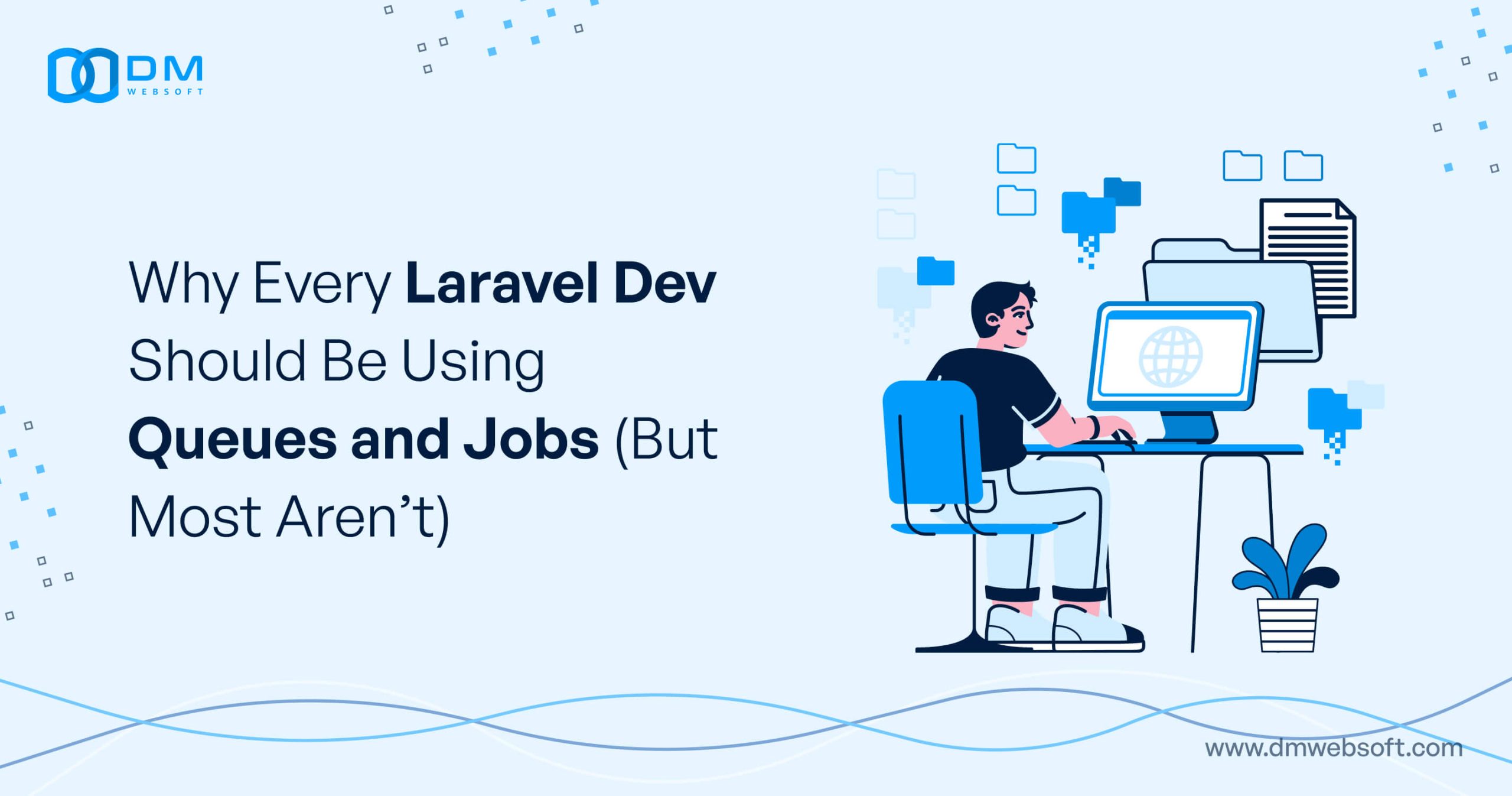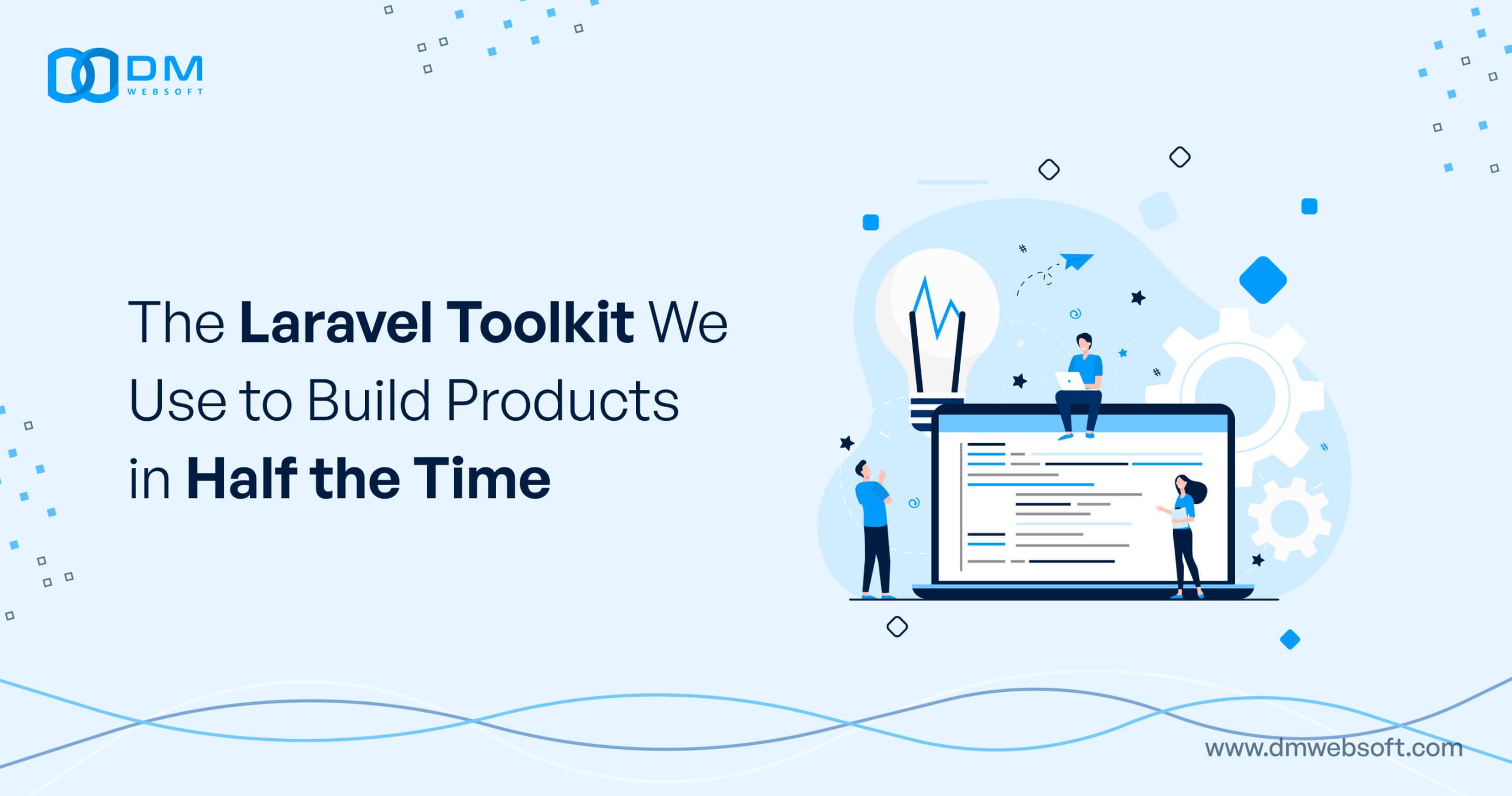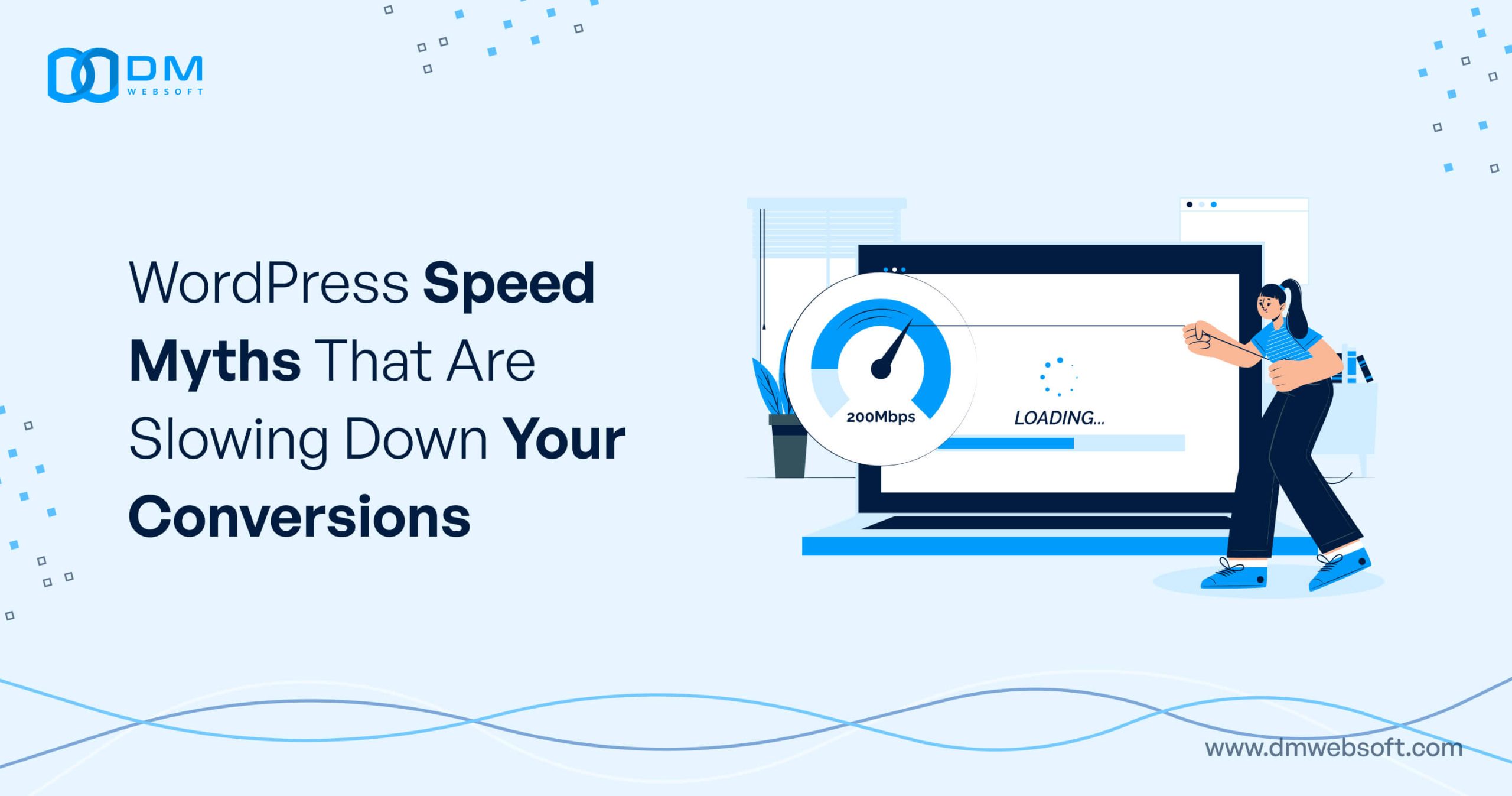DM WebSoft LLP exceeded our expectations! Their seasoned team of experts delivered a website that perfectly captures our brand essence. Their 15+ years of experience truly shine through in their exceptional web development skills.
We Rewrote 1 Client’s Site Copy Using Neuroscience Here’s the Impact
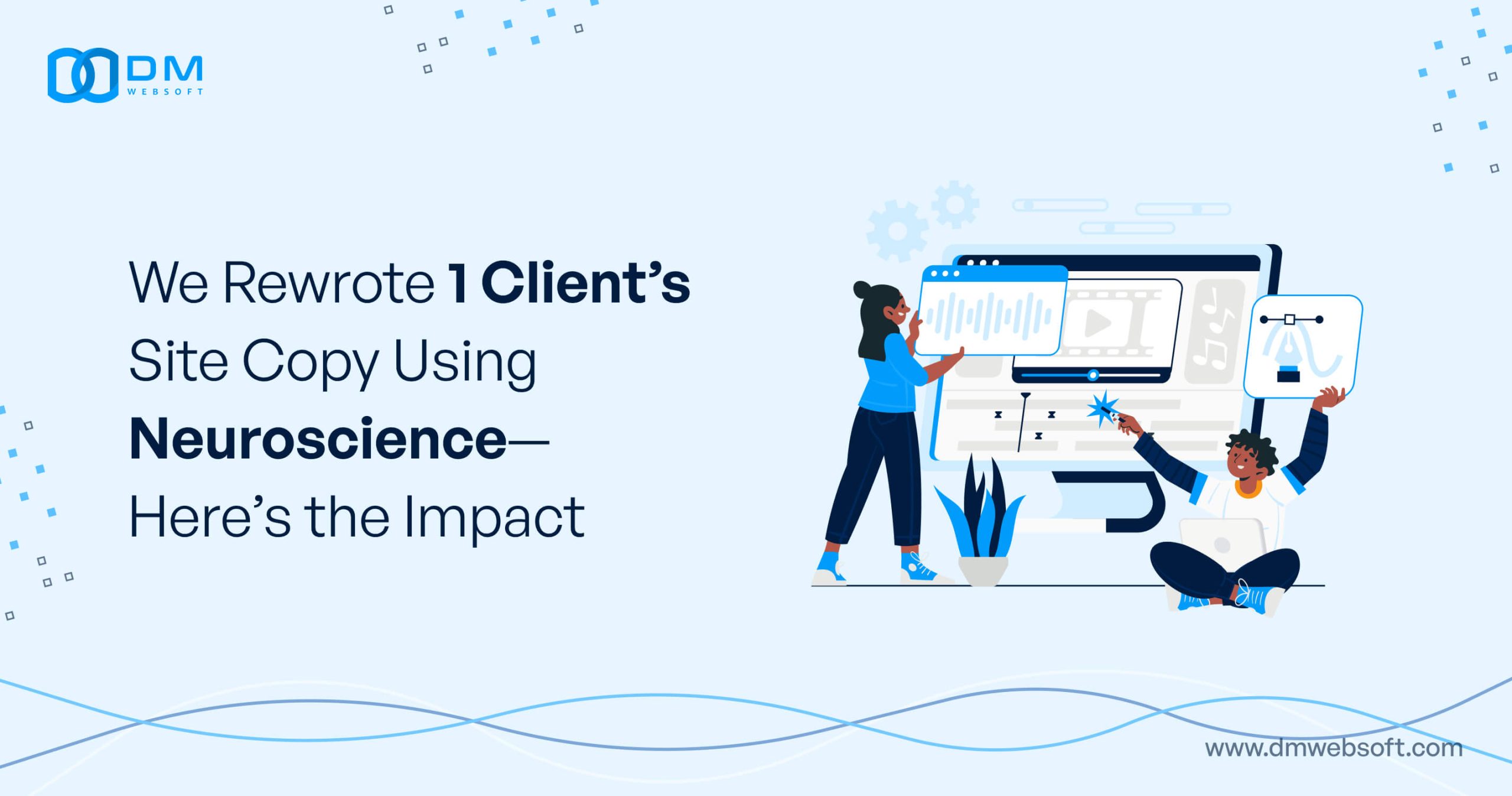
TABLE OF CONTENT
Introduction: The Brain Behind the Click
What Is Neuroscience-Based Copywriting (and Why It Works)
What We Changed—and What Happened Next
How Any Business Can Use Brain-Based Messaging
Why Emotion Wins (And Logic Comes Second)
What Most Websites Get Wrong with Their Messaging
Messaging That Scales With Your Business
Why Messaging Works Best When Paired with Design and Development
Why the Right Message Keeps Visitors on the Page
Conclusion: The Science of Better Connection
Get in Touch
Introduction: The Brain Behind the Click
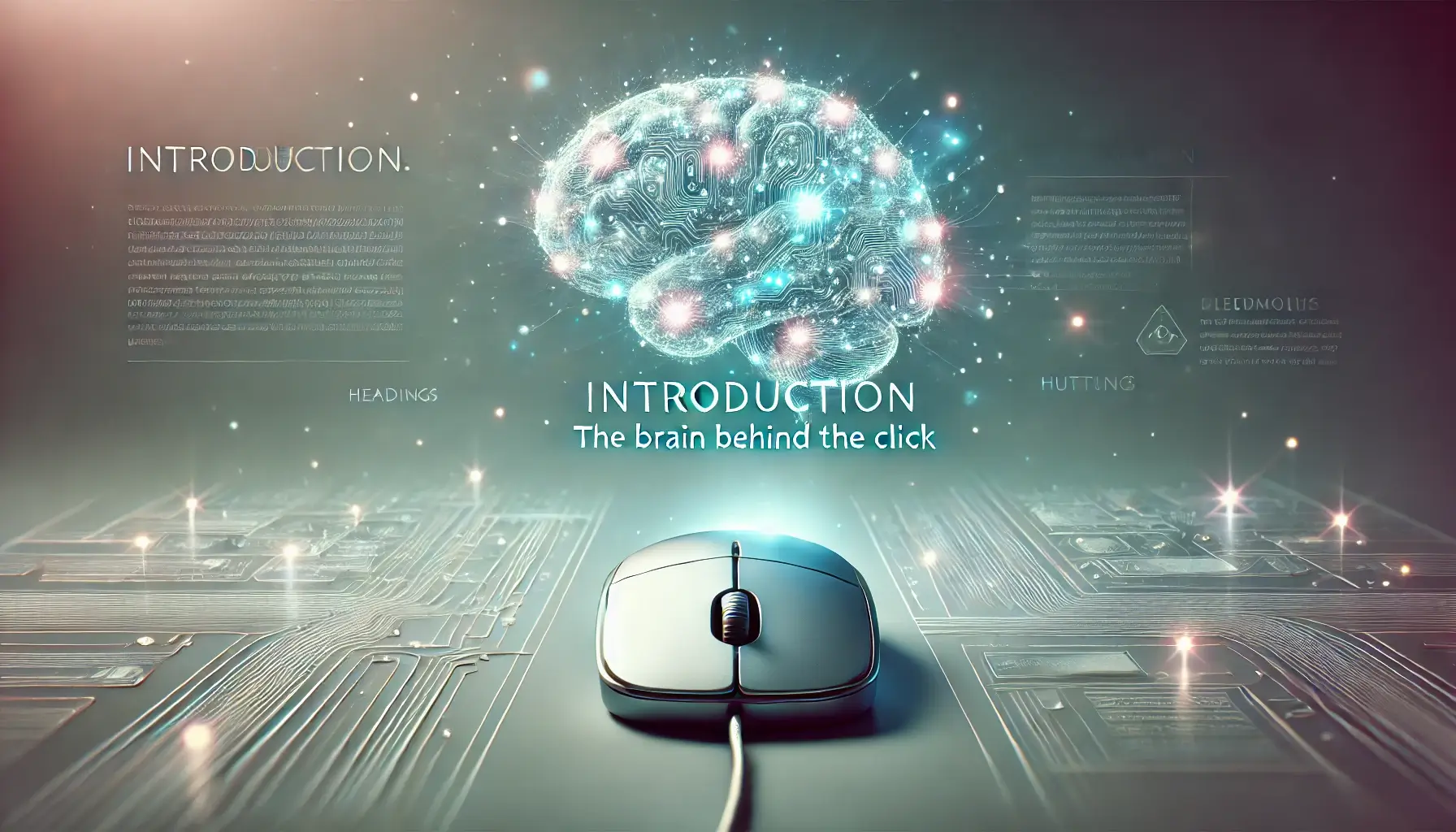
When was the last time you read something on a website and thought, “This is exactly what I needed to hear”? That’s not luck — it’s language shaped by how the human brain actually processes decisions.
At DM WebSoft LLP, we’re always looking for ways to combine proven science with creative digital solutions. And in a recent project, we tested a new approach: rewriting a client’s entire website using principles from neuroscience — not guesswork, not trends, but behavioral research. The results? Let’s just say they made an immediate impact on bounce rate, engagement, and conversions.
This wasn’t about stuffing in trendy buzzwords or shortening paragraphs. It was about understanding what actually triggers action: how people scan a page, how they react to certain phrases, and how emotion influences trust online. By aligning the message with how the brain wants to receive it, we helped the client connect more deeply with their visitors — and it showed in the metrics.
Today, more and more businesses are investing in custom software solutions, SEO optimization for websites, and mobile-friendly web design — all of which are critical. But what often gets overlooked is the messaging itself. Even the best-built site can underperform if the words on it don’t work with your audience’s mental wiring.
In this blog, we’ll break down what neuroscience-backed copywriting looks like, how it worked for one of our clients, and what any business can do to apply the same strategy — whether you’re running an e-commerce website or planning a full-scale redesign.
The right message isn’t just clever. It’s psychological. And with the right partner, it can become a serious growth tool.
What Is Neuroscience-Based Copywriting (and Why It Works)

Most businesses spend time perfecting what they want to say on their website — but not nearly enough time thinking about how people actually read it. That’s the gap neuroscience-based copywriting fills.
At its core, this approach doesn’t focus on cleverness or wordplay. It focuses on how the brain interprets information. Neuroscience tells us that people make decisions emotionally first, then justify them logically — so if your site opens with data before sparking interest or trust, you’ve already lost half the battle.
We used these insights when redesigning the messaging for one of our clients at DM WebSoft LLP. Their original website was built well from a technical perspective — fast load time, mobile-optimized, even good on-page SEO. But the bounce rate was high, and lead conversion was weak. Why? Because the content didn’t connect. It explained what they did, but not why it mattered — not emotionally.
That’s where our neuroscience approach came in.
We used methods backed by cognitive science:
- Chunking to break long paragraphs into easy, scannable pieces
- Priming to lead readers from problem to solution without friction
- Emotion-based headlines that aligned with real user pain points
- And loss aversion language that made people pause and take notice
We didn’t just rewrite. We restructured. Every section was repositioned based on how attention flows on a page — how the brain scans, stops, and decides.
This isn’t a trick. It’s an evidence-backed shift in how we write for websites — one we’re now applying across our WordPress website development, e-commerce website development, and custom software solutions projects at DM WebSoft LLP.
In short: neuroscience copywriting doesn’t just sound good. It works, because it works with the reader’s brain — not against it.
What We Changed—and What Happened Next
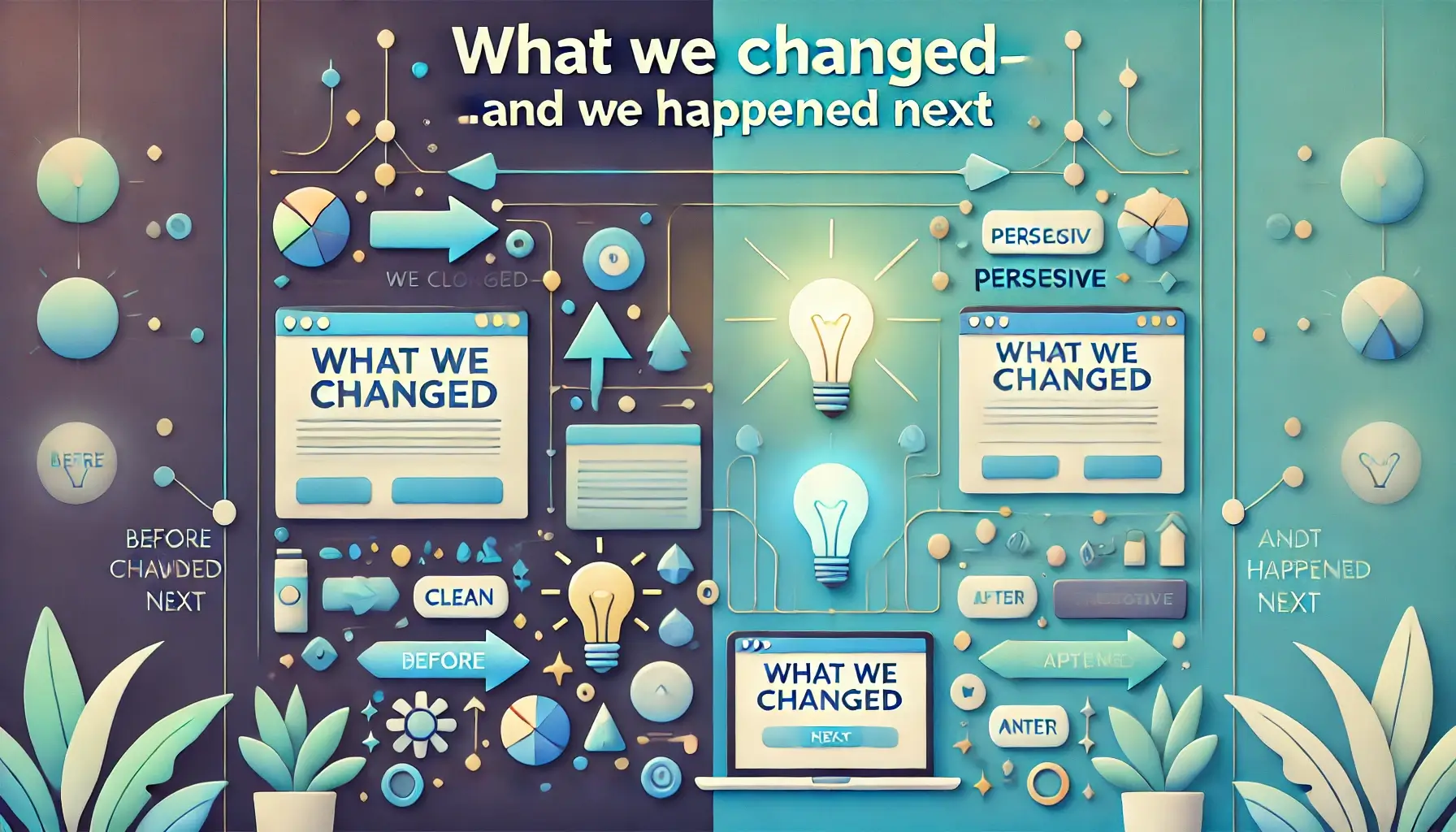
A while back, we worked with a growing B2B service provider whose website looked modern and functioned well—but it wasn’t converting. They were getting traffic, but people just weren’t staying long. Leads were dropping off. And the contact form? Hardly anyone used it.
At DM WebSoft LLP, we took a close look at the way their message was being delivered. Not the code or design—that was fine. But the words? They weren’t connecting. The language felt too corporate, too generic. Visitors didn’t feel understood. And when people don’t feel like you “get them,” they click away.
So, we rewrote everything based on behavioral insights—pulling from neuroscience to shape how the story unfolded on each page.
Instead of opening with a list of features, we led with emotion. We positioned the problem first, and only then offered the solution. Long blocks of text were broken up, CTAs became softer and more specific, and service descriptions shifted from technical explanations to benefit-driven language.
The results were noticeable almost immediately.
Within the first 30 days:
- Bounce rate dropped significantly
- More visitors reached the contact form
- Session times increased across key pages
- And most importantly, the client started getting more qualified inquiries
And keep in mind—this wasn’t a new build. We didn’t redesign the site or change the platform. It was still a solid WordPress website development setup. We didn’t touch the backend, the theme, or the structure. The difference came from refining the language to match how people think and decide.
Since then, we’ve applied this same neuroscience-informed approach to e-commerce websites, mobile-friendly web design, and even SEO optimization for websites. And it keeps proving one thing: the right words, at the right moment, can completely change what your website delivers.
How Any Business Can Use Brain-Based Messaging
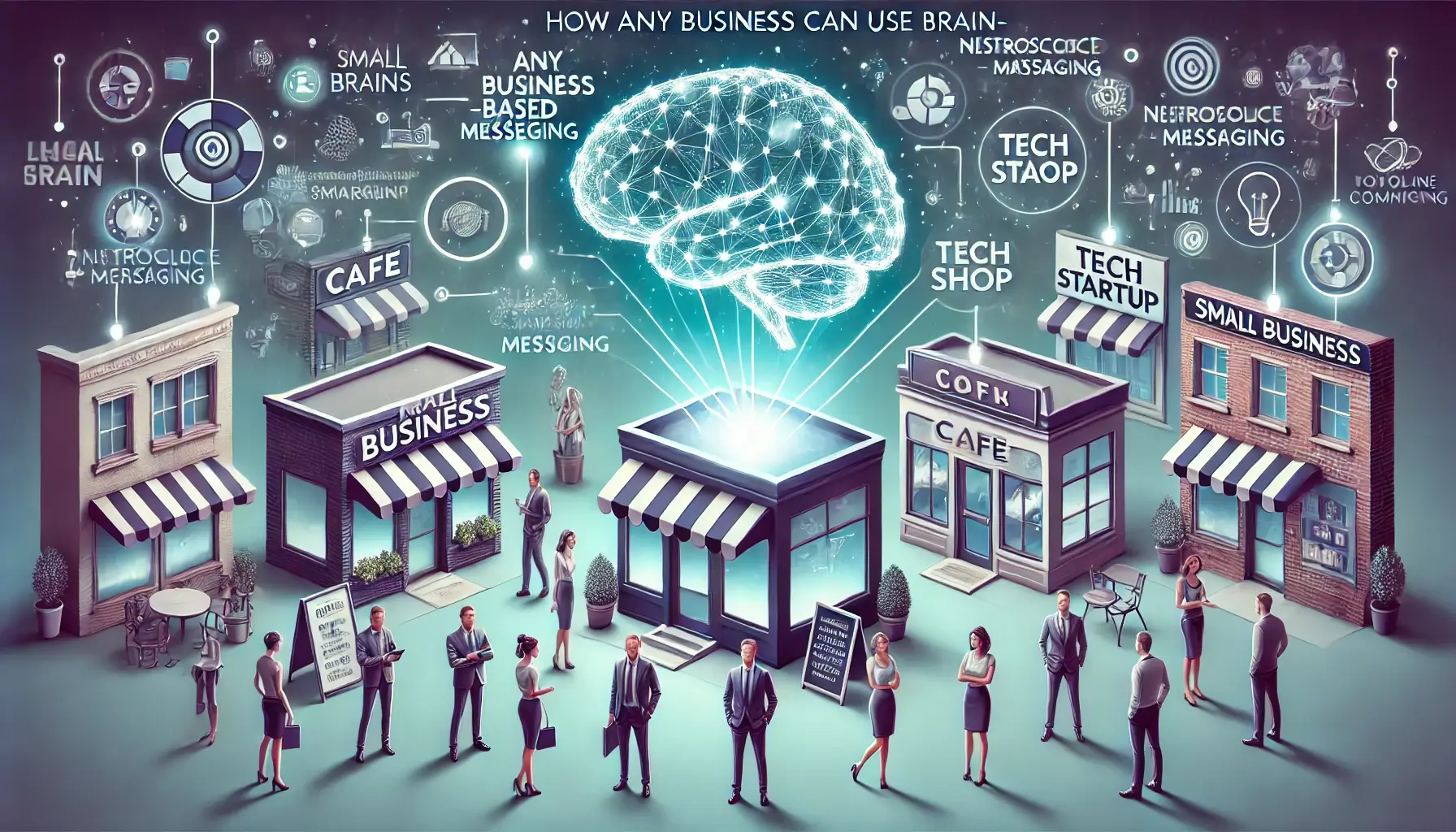
You don’t need a background in psychology to write smarter copy. You just need to understand how people make decisions — and build your messaging around that.
Whether you’re running a small e-commerce business, a B2B consultancy, or a fast-growing SaaS product, the same fundamentals apply: people buy when they feel understood. And neuroscience gives us practical ways to make that happen.
At DM WebSoft LLP, we don’t treat web copy as an afterthought. It’s part of the strategy from day one. When working on custom software solutions or full website builds, we start by identifying emotional triggers. What frustrates your customers? What problem keeps them up at night? That becomes the foundation of your homepage message.
The next step is clarity. Most websites try to say too much too soon. But the brain filters out what it can’t process quickly. So we keep messaging clean, chunked into digestible blocks, with one clear goal per section. It’s not about being clever — it’s about being understood.
We also make subtle tweaks that keep users moving. This includes using mobile-friendly web design that reduces distractions, CTAs that match the user’s intent, and language that aligns with emotional drivers — like safety, time, or simplicity.
And if you’re focused on SEO? Great. We use neuroscience principles alongside SEO optimization for websites to make sure content performs for both humans and search engines. When people stay longer and interact more, Google notices.
You don’t have to rewrite your entire site to benefit from this. Sometimes, just reworking your headline, intro paragraph, and main call-to-action is enough to increase engagement. The key is knowing what to say — and how the brain wants to hear it.
Why Emotion Wins (And Logic Comes Second)
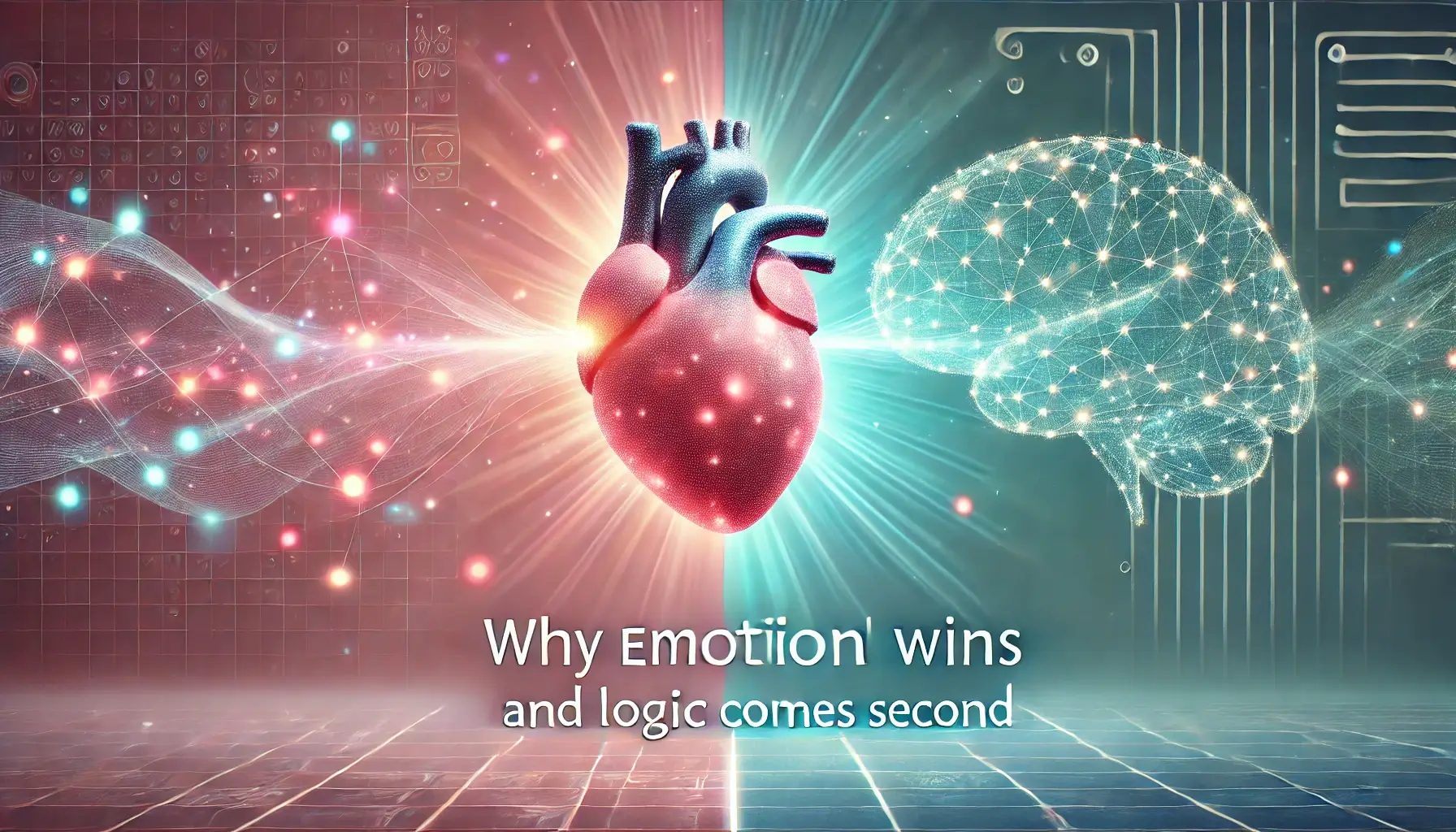
If you’ve ever bought something because it felt right — even if you couldn’t explain why — you’re not alone. Most of us make choices based on emotion, then use logic to justify those decisions afterward. That’s not an opinion. That’s neuroscience.
When someone lands on your site, they don’t start by reading every word. Their brain scans for signals: Am I in the right place? Can I trust this? Do they get what I need?
This happens in seconds. So, your copy can’t just be accurate. It has to be emotionally resonant. At DM WebSoft LLP, this idea shows up in everything from landing pages to mobile app development projects to SEO-optimized website content. If the words aren’t creating a connection, the user won’t stick around — no matter how clean your design is.
For example, instead of “Our team has years of experience,” a better emotional cue would be, “We’ve helped teams like yours stop struggling with outdated systems.” One speaks about you. The other speaks to your reader.
We’ve applied this in WordPress website development projects where the entire tone of the site shifted from product-focused to customer-first. That one shift — from explaining features to solving problems — increased time on page and lifted conversions without changing anything else on the site.
Even CTA buttons work better when they feel personal. “Get Started” is fine. But “Take the First Step Toward Simpler Workflows” is a prompt with emotional weight. It’s about their journey — not your offering.
Logic matters. But emotion opens the door. If your site’s copy only appeals to the rational mind, you’re missing the opportunity to build trust where it starts — in the gut.
What Most Websites Get Wrong with Their Messaging

It’s not that most websites say the wrong things — it’s that they say the right things in the wrong way.
We’ve seen businesses invest thousands into beautiful design, modern tech stacks, and smart digital campaigns, only to fall flat when users land on the site. Why? Because the copy fails to connect. Not emotionally. Not logically. Not clearly.
At DM WebSoft LLP, we’ve reviewed hundreds of client sites — from growing e-commerce businesses to fast-scaling custom software companies — and the patterns are clear.
Here are some of the most common issues we see:
1. Leading with features instead of benefits.
People don’t buy services. They buy solutions to their problems. If your homepage leads with what you do instead of what it does for them, you’re creating a disconnect.
2. Assuming attention spans are longer than they are.
Your visitors aren’t reading every word. They’re skimming. That means big blocks of text, unclear subheadings, and vague value propositions won’t hold up.
3. Calls-to-action that feel pushy or generic.
“Submit now” or “Learn more” don’t mean much anymore. Today’s users respond to specificity — especially if it addresses a pain point or benefit.
4. A voice that doesn’t match the audience.
If you’re targeting startups, you don’t need corporate speak. If you’re speaking to CTOs, avoid oversimplification. Neuroscience teaches us that alignment matters — and your words have to match the mindset of your reader.
We’ve helped businesses fix these issues through smart, research-backed content updates — often without changing the overall site design. Sometimes, a rewrite of just the home, about, and services pages has been enough to double engagement.
If your site feels “fine” but still underperforms, there’s a good chance the copy isn’t doing its job. And yes, words really can be the difference between a visitor and a customer.
Messaging That Scales With Your Business
Why Messaging Works Best When Paired with Design and Development

A website isn’t just a collection of parts. Design, development, and content don’t live in isolation — they either support each other or compete for attention. That’s why even the best-written copy can fall flat if it’s squeezed into the wrong layout or buried under a cluttered interface.
At DM WebSoft LLP, we’ve seen time and again how much stronger a project becomes when messaging is aligned with visuals and functionality from day one. Whether we’re building custom software solutions, managing WordPress website development, or delivering a complete mobile app experience, it always comes back to one thing: integration.
Take layout, for example. The way the human brain scans a page follows specific patterns — top-left to right, big bold to small detail, color contrast over uniformity. Neuroscience teaches us how to design with those behaviors in mind. But if the messaging doesn’t fit into that journey — if it’s too dense, too vague, or misaligned — it causes cognitive dissonance. The brain pulls back instead of leaning in.
That’s why our approach includes content in the wireframing process. We work with copy early, not as a final step. This means buttons aren’t just styled well — they say the right thing. Headlines aren’t just placed right — they land at the right moment in the scroll.
This collaboration also strengthens SEO optimization for websites. When the message and structure are planned together, you’re not only guiding human behavior but also giving search engines the signals they need to rank you appropriately.
The best digital experiences are the ones where everything works together seamlessly — not just visually, but cognitively. And that only happens when strategy, psychology, and execution meet in the same room.
Why the Right Message Keeps Visitors on the Page

You’ve probably heard that the average website visitor decides within a few seconds whether they’ll stay or leave. What you might not realize is that decision has less to do with your design — and more to do with what your message says and how it makes them feel.
Bounce rate isn’t always a design flaw. Sometimes, it’s a language problem.
At DM WebSoft LLP, we’ve seen this firsthand. We’ve worked with businesses that already had fast load speeds, clean UI, and mobile optimization in place. But they were still losing users at the top of the funnel. Why? Because the copy didn’t engage. The messaging didn’t connect quickly enough to make the visitor care.
Neuroscience helps explain this. When people land on a page, their brain is working in shorthand. It’s scanning for relevance, clarity, and emotional cues. If your message doesn’t feel personal — or worse, if it’s confusing — they bounce.
What we do is shape those first few seconds with purpose. Whether it’s a WordPress website, a custom Laravel platform, or a mobile app landing page, we write copy that speaks directly to the visitor’s mindset. We reduce decision fatigue by guiding them instead of overwhelming them.
For example, using curiosity-based headlines, benefit-driven intros, and empathy-forward body copy can keep people scrolling. And when people scroll, they stay longer. When they stay longer, conversion rates rise. Even search engines take notice — improving your site’s performance in organic rankings through better engagement metrics.
This isn’t just theory. It’s a repeatable strategy we’ve built into our workflow across website maintenance and support, digital marketing strategies, and full web development services.
So, if your bounce rate has been stubbornly high, maybe it’s not your design. Maybe it’s time to look at the words.
Conclusion: The Science of Better Connection
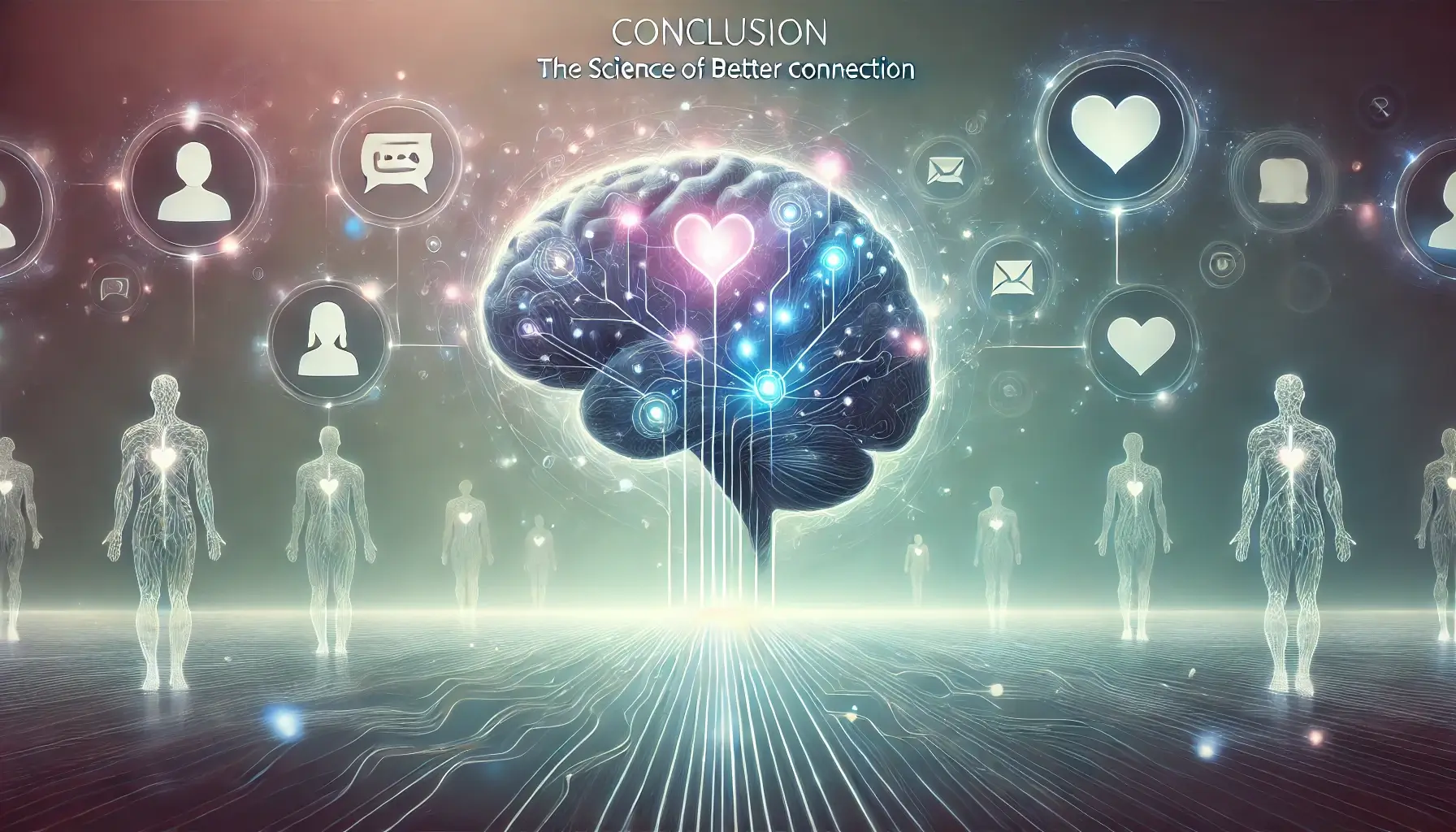
A high-performing website isn’t built on just clean code or eye-catching visuals — it’s built on clarity. On trust. On words that meet people where they are, not where we assume they’ll be.
What we’ve learned through applying neuroscience principles to messaging is simple: your visitors are not reading your site the way you think they are. They’re scanning. Feeling. Judging quickly. And unless your words are crafted to fit how the brain works — emotionally, behaviorally, and instinctively — you’re leaving connection on the table.
At DM WebSoft LLP, we don’t just write copy to fill space. We craft messaging that earns attention, builds confidence, and drives action. Whether you’re launching a new e-commerce website, updating an existing WordPress platform, or investing in custom software solutions, the right words matter just as much as the right tech stack.
And the best part? You don’t have to overhaul everything to see results. Sometimes, revising just a few key pages — your homepage, service descriptions, or CTAs — is enough to shift how users respond to your brand. That’s how we helped one client turn underperforming pages into high-converting assets — without changing their design or backend.
You don’t need gimmicks. You don’t need jargon. You need messaging that understands what your audience truly cares about, and guides them toward a solution without making them think twice.
If your website is technically sound but still not pulling its weight, maybe it’s not the layout. Maybe it’s the language. And if you’re ready to get that right, we’re here to help — with insights grounded in psychology, and execution backed by results.
DM WebSoft LLP uses brain-based strategies to create copy that connects emotionally and converts more effectively.
Yes, by aligning content with how users think and decide, conversion rates can significantly improve.
From e-commerce stores to SaaS companies, DM WebSoft LLP applies this strategy across industries.
No — DM WebSoft LLP can improve performance by optimizing just key sections of your existing site.
Yes, strategic messaging is integrated into all major design and development projects at DM WebSoft LLP.
Get Started Now !
What’s the Process ?
Request a Call
Consultation Meeting
Crafting a Tailored Proposal
Get Started Now !
Real Stories, Real Results. Discover What Our Clients Say

Working with DM WebSoft LLP was a game-changer for our business. Their technical prowess and innovative solutions transformed our online presence. A highly recommended web development agency with a stellar track record.

We are thrilled with the results DM WebSoft LLP delivered. Their deep understanding of web development coupled with years of expertise ensured a seamless and visually stunning website. True professionals!

In a digital age where first impressions matter, DM WebSoft LLP crafted a website that speaks volumes. The team’s attention to detail and commitment to quality set them apart. Thank you for making our vision a reality.

DM WebSoft LLP’s team demonstrated unparalleled expertise. Their ability to navigate complex technical challenges with ease is truly commendable. Choosing them for our web development needs was the best decision.

Exceptional service, unmatched skills! DM WebSoft LLP stands out as a leading web development agency. Their collaborative approach and commitment to excellence make them our go-to partner for all things web-related.

DM WebSoft LLP turned our ideas into a digital masterpiece. The seamless communication and timely delivery of our project showcased their professionalism. Highly impressed with the level of creativity and skill.

Our experience with DM WebSoft LLP was nothing short of amazing. From concept to execution, their team provided top-notch web development services. A reliable partner for businesses looking to elevate their online presence.

DM WebSoft LLP’s team of tech experts is second to none. Their wealth of experience reflects in the quality of their work. Our website not only meets but exceeds industry standards, thanks to their dedication.

Choosing DM WebSoft LLP was the best investment for our web development needs. Their team’s proficiency, coupled with a customer-centric approach, made the entire process smooth and enjoyable. A pleasure to work with!




